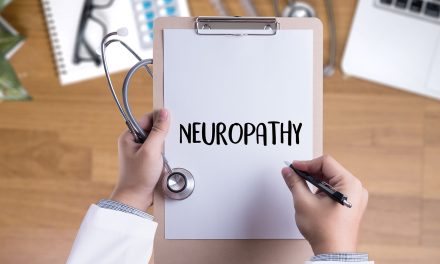Neuropathy is a condition that affects the nervous system, causing symptoms such as pain, numbness, and weakness, primarily in the hands and feet. The condition is often associated with various underlying causes including diabetes, infections, inherited disorders, and exposure to toxins. Due to the complexity of the nervous system and the range of potential causes, treatment for neuropathy requires a comprehensive approach tailored to the individual’s specific needs and the underlying cause of their symptoms.
Management of neuropathy typically involves a combination of medical interventions and lifestyle modifications. Medications are used to alleviate pain and other symptoms, while therapies such as physical therapy help maintain mobility and functional ability. Equally important are dietary adjustments, regular exercise, and the use of supplements and vitamins that may support nerve health. Additionally, some patients may find relief through alternative therapies or require psychological support to cope with the chronic nature of neuropathy.
Key Takeaways
- Neuropathy treatment is personalized and may include medical, lifestyle, and alternative approaches.
- Symptom management and maintaining functionality are central goals of treatment.
- Ongoing research is expanding treatment options for neuropathy sufferers.
Understanding Neuropathy
Neuropathy refers to damage or dysfunction of one or more nerves, typically resulting in numbness, tingling, muscle weakness, and pain in the affected area. These symptoms are often the result of peripheral nerve damage, although neuropathy can affect other areas of the nervous system.
Types of Neuropathy:
- Peripheral: Affects nerves outside the brain and spinal cord.
- Autonomic: Impacts the autonomic nervous system, controlling internal organs.
- Proximal: Involves nerves in the thighs, hips, or buttocks.
- Focal: Limited to one nerve or group of nerves.
Causes of Neuropathy:
- Diabetes
- Infections
- Autoimmune diseases
- Trauma
- Hereditary disorders
It is crucial to identify the underlying cause of neuropathy to determine the appropriate treatment. For example, controlling blood sugar levels is vital in diabetic neuropathy. In contrast, neuropathy caused by a vitamin deficiency requires supplementation.
Diagnosis often involves a physical examination, review of medical history, and additional testing such as:
- Blood tests
- Nerve function tests
- Imaging studies
Understanding the type and cause of neuropathy is essential for effective management and may involve medication, physical therapy, lifestyle changes, or treating the underlying condition. It is a condition with numerous potential causes and a wide array of management strategies.
Diagnosing Neuropathy
Diagnosing neuropathy involves a series of assessments designed to identify the presence and cause of nerve damage. Healthcare providers may employ various methods to accurately diagnose this condition.
Clinical Evaluation
Clinicians begin with a thorough medical history and physical examination. They assess symptoms, such as pain or numbness, and look for physical signs of neuropathy, including changes in reflexes, muscle weakness, and alterations in sensation.
Neurological Testing
Neurological examinations are essential for assessing nerve function.
- Reflex Tests: Reflex hammers are used to check the health of the nerves controlling muscles.
- Sensory Tests: Various tools test the skin’s sensitivity to touch, vibration, and temperature.
Laboratory Tests
Laboratory tests can identify underlying conditions causing neuropathy. Common tests include:
- Blood Sugar Levels: To exclude or confirm diabetes.
- Vitamin Levels: Assessing for deficiencies, especially vitamin B12.
- Kidney and Liver Function: To detect organ dysfunction that can affect nerves.
Imaging Studies
Imaging techniques can uncover physical causes of neuropathy:
- X-rays: Reveal bone abnormalities that may impinge on nerves.
- MRI: Provides detailed images of soft tissues, including nerves and surrounding structures.
Medical Treatment Options
Medical treatment options for neuropathy vary based on the type and severity of the condition. Effective management often includes the use of prescription medications, over-the-counter pain relievers, and topical treatments to alleviate symptoms.
Prescription Medications
Anticonvulsants: These medications, originally designed to treat epilepsy, may help to reduce nerve pain. Gabapentin and pregabalin are commonly prescribed.
Antidepressants: Certain antidepressants have been found effective in treating neuropathy pain. Tricyclic antidepressants, such as amitriptyline and nortriptyline, as well as serotonin-norepinephrine reuptake inhibitors (SNRIs), like duloxetine, are examples.
OTC Pain Relievers
- Acetaminophen: It may be recommended for mild neuropathic pain.
- NSAIDs: Nonsteroidal anti-inflammatory drugs, including ibuprofen and naproxen, can be used for pain relief; however, they must be used with caution due to potential side effects, especially with long-term use.
Topical Treatments
Capsaicin Cream: Derived from chili peppers, capsaicin cream can be applied to the skin to reduce pain sensations.
Lidocaine Patches: These adhesive patches contain a local anesthetic that can numb the area of the skin to which they are applied.
Lifestyle Modifications
Lifestyle modifications can significantly help manage neuropathy symptoms. These targeted approaches aim to reduce discomfort and improve overall nerve function.
Dietary Changes
Adopting a nutrient-rich diet is essential for individuals with neuropathy. Elements to focus on include:
- Vitamins and Minerals: A diet high in vitamins B6 and B12, folic acid, vitamin E, and magnesium can promote nerve health.
- Glucose Control: For diabetic patients, regulating blood sugar levels is crucial. They should prioritize a balanced intake of carbohydrates, proteins, and fats.
- Anti-inflammatory Foods: Consuming foods such as omega-3 fatty acids found in fish and flaxseeds may help combat inflammation.
Exercise and Physical Therapy
Regular exercise can enhance blood flow and reduce neuropathy symptoms. Key points are:
- Low-Impact Activities: Options such as swimming, cycling, and yoga can improve circulation without overstressing the nerves.
- Strength Training: Building muscle can protect against further nerve damage and improve physical function.
Stress Management Techniques
Stress can exacerbate neuropathy symptoms. Integration of stress-relief practices is important:
- Mindfulness and Meditation: These practices encourage relaxation and can help reduce pain perception.
- Routine Schedule: Maintaining a regular routine for activities and rest may help reduce stress and improve quality of sleep.
Supplements and Vitamins
Certain supplements and vitamins may help manage neuropathy symptoms. They can support nerve health and potentially reduce discomfort.
B-Vitamins
B-vitamins are crucial for nerve health, specifically vitamins B1, B6, B12, and folic acid. They play a vital role in nerve regeneration and function.
- Vitamin B1 (Thiamine): Essential for nerve signal transmission.
- Vitamin B6 (Pyridoxine): Involvement in nerve sheath formation.
- Vitamin B12: Can help in the maintenance of the myelin sheath.
- Folic Acid: Works in conjunction with B12 to create red blood cells and aid nerve health.
Alpha-Lipoic Acid
Alpha-lipoic acid is an antioxidant that has shown promise in improving neuropathic symptoms.
- Dosage Guideline:
- Typically, 600–1200 mg per day, divided into several doses.
- Potential Benefits:
- May help with pain, tingling, and numbness in people with diabetic neuropathy.
Omega-3 Fatty Acids
Omega-3 fatty acids, found in fish oil and flaxseed, may reduce inflammation associated with neuropathy.
- Sources:
- Fish Oil:
- Salmon
- Mackerel
- Plant-Based:
- Flaxseeds
- Chia seeds
- Fish Oil:
- Impact:
- Can support nerve cell structure and cardiovascular health.
Alternative Therapies
While traditional medical treatments are often the first line of defense against neuropathy, alternative therapies can also play a significant role in managing symptoms. These therapies may provide relief and assist in overall wellness.
Acupuncture
Acupuncture involves the insertion of very thin needles into specific points on the body. This practice is thought to stimulate nerves, muscles, and connective tissue, potentially increasing blood flow and activating the body’s natural painkillers. It is widely used for various types of pain, and some individuals with neuropathy report beneficial effects.
Biofeedback Therapy
Biofeedback Therapy is a non-drug treatment which teaches people to control bodily processes that are normally involuntary. These include muscle tension, heart rate, and blood flow. For neuropathy sufferers, biofeedback can help them become more aware of their body’s responses and learn how to modulate their perception of pain.
Herbal Remedies
Herbal Remedies involve using plants or plant extracts to manage health conditions. In the context of neuropathy, certain herbs are noted for their potential nerve-calming properties:
- Alpha-lipoic acid: An antioxidant that may help improve insulin sensitivity and reduce symptoms of neuropathy.
- Magnesium: May alleviate muscle cramps and neuropathic pain, though it’s important to use the proper dosage to avoid adverse effects.
- St. John’s Wort: Traditionally used for nerve damage and to relieve pain, though interactions with other medications must be considered.
Individuals should consult with a healthcare provider before starting any alternative therapies to ensure they are appropriate and safe given their specific health conditions.
Interventional Therapies
Interventional therapies offer targeted approaches for the management of neuropathic pain. These treatments aim to interrupt pain signals and provide relief.
Nerve Blocks
Nerve blocks involve the injection of medication directly into or around a nerve or into the space around the spinal cord. The most commonly used medications include local anesthetics and steroids. Here is a brief overview:
- Local Anesthetics: They work by temporarily numbing the nerve, thereby disrupting pain signal transmission.
- Steroids: These may reduce inflammation and swelling, offering pain relief.
Transcutaneous Electrical Nerve Stimulation (TENS)
Transcutaneous Electrical Nerve Stimulation, or TENS, uses a battery-powered device to deliver electrical impulses to the skin overlying affected nerves. The key details are as follows:
- Frequency of Impulses: The device can be adjusted to emit low or high-frequency electrical impulses.
- Purpose: The impulses can stimulate nerves to reduce the perception of pain.
Mobility and Assistive Devices
Neuropathy can significantly impair an individual’s mobility, necessitating the use of various assistive devices. These devices are designed to enhance independence and safety by compensating for muscle weakness and loss of sensation.
Canes: For mild balance issues, a cane can provide the extra stability needed. Patients should have canes properly fitted to their height for optimal support.
Walkers: More substantial than canes, walkers offer greater stability and are available with or without wheels. They are especially beneficial for those with severe neuropathy symptoms.
Wheelchairs: In cases where walking is excessively difficult or unsafe, wheelchairs allow patients to maintain mobility and reduce the risk of falls.
Orthotic Devices:
- Ankle-Foot Orthoses (AFO): These braces support the foot and ankle, providing stability for weakened muscles.
- Insoles: Custom orthotic insoles can help redistribute pressure on the feet to prevent ulcers.
Proper Footwear: Shoes with extra cushioning and support can help protect the feet from injury due to decreased sensation.
| Device | Purpose | Consideration |
|---|---|---|
| Canes | Stability for mild balance issues | Must be height-adjusted |
| Walkers | Greater stability for severe symptoms | Choose between wheeled or standard |
| Wheelchairs | Mobility when walking is unsafe/difficult | Consider the extent of mobility limitation |
| Orthotic Devices | Support for weakened foot/ankle muscles | Must be properly fitted by a professional |
| Proper Footwear | Cushion and protect feet | Essential for pressure redistribution |
Patients are advised to consult with a healthcare professional to determine the best mobility or assistive devices to fit their individual needs. Regular assessments are important as neuropathy symptoms can progress, altering the type of assistance required.
Psychological Support
Psychological support is crucial for individuals coping with neuropathy, as it can help address the emotional and mental challenges that come with chronic pain and loss of function.
Counseling and Therapy
Patients may benefit from professional counseling or psychotherapy to develop strategies for pain management and to cope with the emotional distress that neuropathy can cause. Cognitive-behavioral therapy (CBT) is particularly helpful in teaching patients how to modify thought patterns and behaviors that exacerbate their pain.
Support Groups
Joining a support group can provide a sense of community and understanding for individuals with neuropathy. Sharing experiences with others who face the same challenges can alleviate feelings of isolation and provide practical advice for managing symptoms. Support groups can be found both in-person and online, accommodating individuals with various levels of mobility.
Research and Experimental Treatments
Neuropathy involves damage to the nervous system, and research continues to explore innovative treatments. Stem Cell Therapy is at the forefront. Scientists are investigating the potential for stem cells to regenerate damaged nerves, although widespread application is still under study.
Another promising avenue is Gene Therapy. By delivering genetic material into a patient’s cells, they aim to tackle the underlying genetic causes of certain neuropathies.
Researchers are also experimenting with Immunotherapy. Since some neuropathic diseases are autoimmune in nature, treatments that modulate the immune system could be beneficial.
Neurotrophic factors, proteins that aid in the survival and growth of neurons, are also a subject of study. These could potentially reverse or slow down nerve damage.
| Experimental Treatment | Potential Impact |
|---|---|
| Stem Cell Therapy | Regeneration of damaged nerves |
| Gene Therapy | Addressing genetic neuropathies |
| Immunotherapy | Modulating immune system response |
| Neurotrophic Factors | Promoting neuron survival and repair |
Clinical trials for these treatments play a crucial role. They help researchers to determine the safety and efficacy of new therapies. Participation in such trials is regulated, and individuals are selected based on specific criteria.
Patients should consult healthcare providers before considering participation in experimental treatments. It’s essential to balance the potential benefits against possible risks.
In conclusion, while experimental treatments for neuropathy hold promise, they require thorough investigation to ensure they are both safe and effective for patients.
Frequently Asked Questions
Exploring effective treatments and management strategies for neuropathy in the extremities is essential for those affected. This section answers common questions regarding available treatments, home remedies, prescription medications, symptoms, lifestyle considerations, and recent advancements in neuropathy care.
What are the best treatments currently available for neuropathy in extremities such as feet and legs?
The most effective treatments for neuropathy in extremities include tight glucose control for diabetic neuropathy, physical therapy, and the use of medications like gabapentin and pregabalin. Topical treatments such as capsaicin cream may also provide relief.
Can neuropathy be effectively managed with home remedies, and what are some examples?
Home remedies can complement medical treatments for neuropathy. Examples include regular foot care, warm baths, and exercises designed to improve circulation and muscle strength. Supplements like alpha-lipoic acid and acetyl-L-carnitine may also be beneficial.
Which prescription medications are considered most effective for managing neuropathy symptoms in feet?
Prescription medications such as duloxetine, gabapentin, and pregabalin are often prescribed to alleviate pain associated with neuropathy. Tricyclic antidepressants can also be effective for neuropathic pain management.
What are the primary symptoms to be aware of when diagnosing neuropathy?
Key symptoms of neuropathy include persistent numbness, tingling, or pain in the feet and legs. One may also experience weakness or burning sensations. These symptoms typically worsen at night.
Are there specific activities or habits that should be avoided when suffering from neuropathy?
Individuals with neuropathy should avoid activities that can lead to nerve injury, such as repetitive motions or prolonged pressure on the extremities. Smoking and excess alcohol consumption can also exacerbate neuropathy by impairing blood flow.
What advancements have been made in the treatment of neuropathy recently?
Recently, advancements in neuropathy treatment have included the development of new drug therapies and delivery systems, such as patches and gels. The use of electrical nerve stimulation techniques has been refined, and research into regenerative medicine offers potential future treatments.
Conclusion
In conclusion, managing neuropathy involves a multi-faceted approach that encompasses medication, lifestyle modifications, and alternative therapies. By working closely with healthcare professionals, individuals can develop personalized treatment plans to address their specific symptoms and improve their quality of life. It’s important to explore various strategies, such as physical therapy, dietary changes, and stress management techniques, to effectively manage neuropathic symptoms. With a comprehensive and individualized approach, many individuals can find relief and better cope with the challenges of living with neuropathy.





















